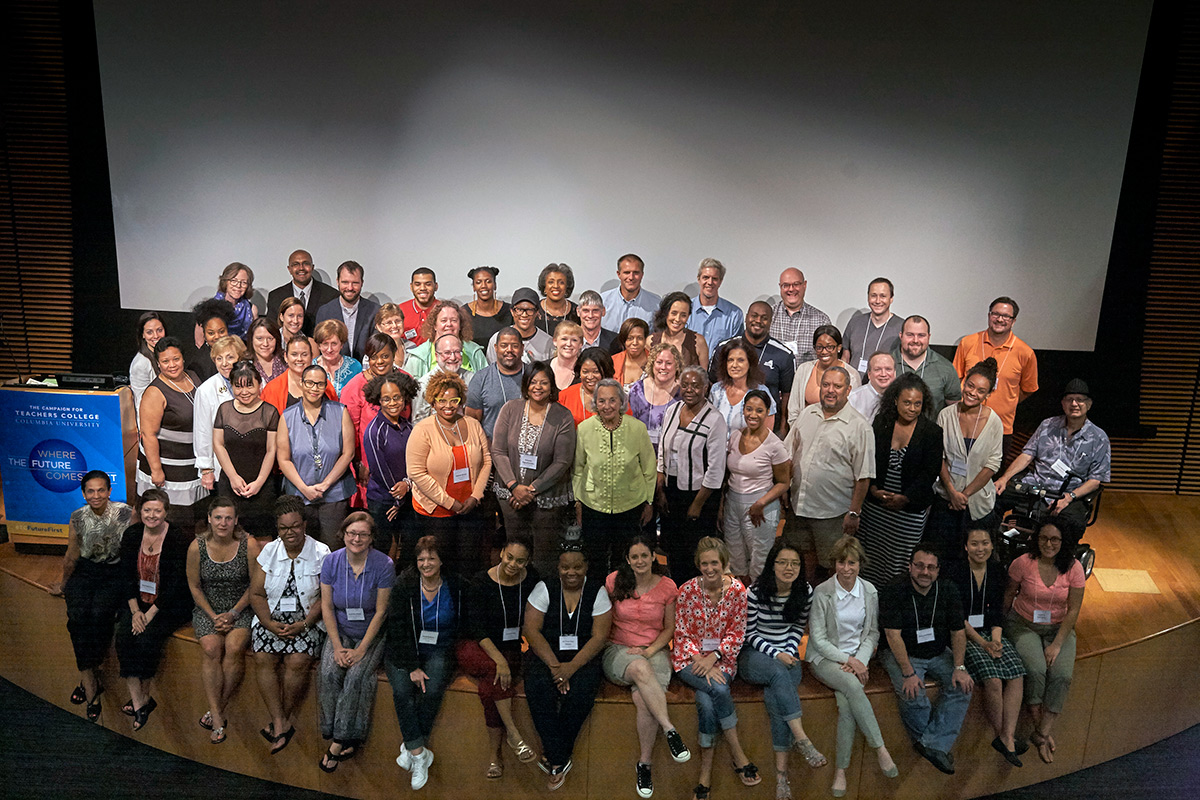The lack of financial literacy among Americans comes with a high cost: more debt, plus lower credit scores and net worth, according to a recent report from the Brookings Institution. Financial Literacy Awareness Month highlights the critical need for financial literacy education in the nation’s schools—now mandated in 17 states and counting for high schoolers, with 28 states beginning conversations about checkbooks and debt even younger.
For teachers tasked with meeting new legislation and public demand, TC’s Cowin Financial Literacy Program provides hands-on, research-driven curriculum and tools for educators helping students master concepts too often deemed insurmountable.
Interested in our next session of the Cowin Financial Literacy Program online? Sign-up to receive notification when details are announced.
This unique program—offered free-of-cost—has served over 1000 educators across the US and internationally through its in-person Summer Institutes and online offerings, thanks to the generous support of TC Trustee and alumna Joyce B. Cowin (M.A. ’52), who has funded the program since 2012.
Reflecting “TC’s belief that the best way to approach any educational or social problem is to teach the teachers,” the Cowin program is distinctive among its kind in focusing on teachers and in employing case studies drawn from real life, explains Anand Marri, the program’s lead architect and former Vice President and Head of Outreach & Education at the New York Federal Reserve Bank.
“Our program is built on the principle that people learn best by doing, as first espoused by John Dewey a century ago at Teachers College,” says Marri.
Designed for classroom teachers, pre-service teachers and other educators, the Cowin Program fully funds Cowin Fellows to take the online course, which also provides three (3) continuing education units (CEUs) or 30 CTLE credits (30 contact hours) as well as a financial literacy certificate from W!SE (Working in Support of Education) to those who complete the course. based on the program’s original case studies focused on essential financial concepts, such as savings, investing, budgeting, financial planning, credit, risk, consumption, and diversification.
“When the market collapsed in 2008, many wonderful, hardworking people who had saved money throughout their lives were snookered about sub-prime mortgages, and they lost their homes, their credit and their money because they didn’t know the right questions to ask,” Cowin said upon the program’s launch. “They were told ‘Here’s that home you’ve worked for all your life, and you can have it with a 2 percent mortgage--and your children will be able to attend a better school.’ And then within the year the mortgage rates went up and they couldn’t afford to pay the increased rate--and they were left with nothing. And that should never happen again.”
“You have the skills and the knowledge to make an even bigger difference in the lives and futures of your students,” Cowin said recently to the current cohort of Cowin Fellows, who will complete the course this month. “I hope you’ll use this knowledge every day for the rest of your careers, and I hope you’ll tell other educators about the Cowin Program so that we can continue working toward our goal of creating financial literacy in America–one student, one classroom at a time.”
Visit the Cowin Financial Literacy Program website for free classroom materials.
Learn more about the program here.
Related stories:
Cowin Financial Literacy Program Featured in Action at Texas High School
Paying Dividends: In Year Three, TC’s Cowin Financial Literacy Project Truly Hits Its Stride
